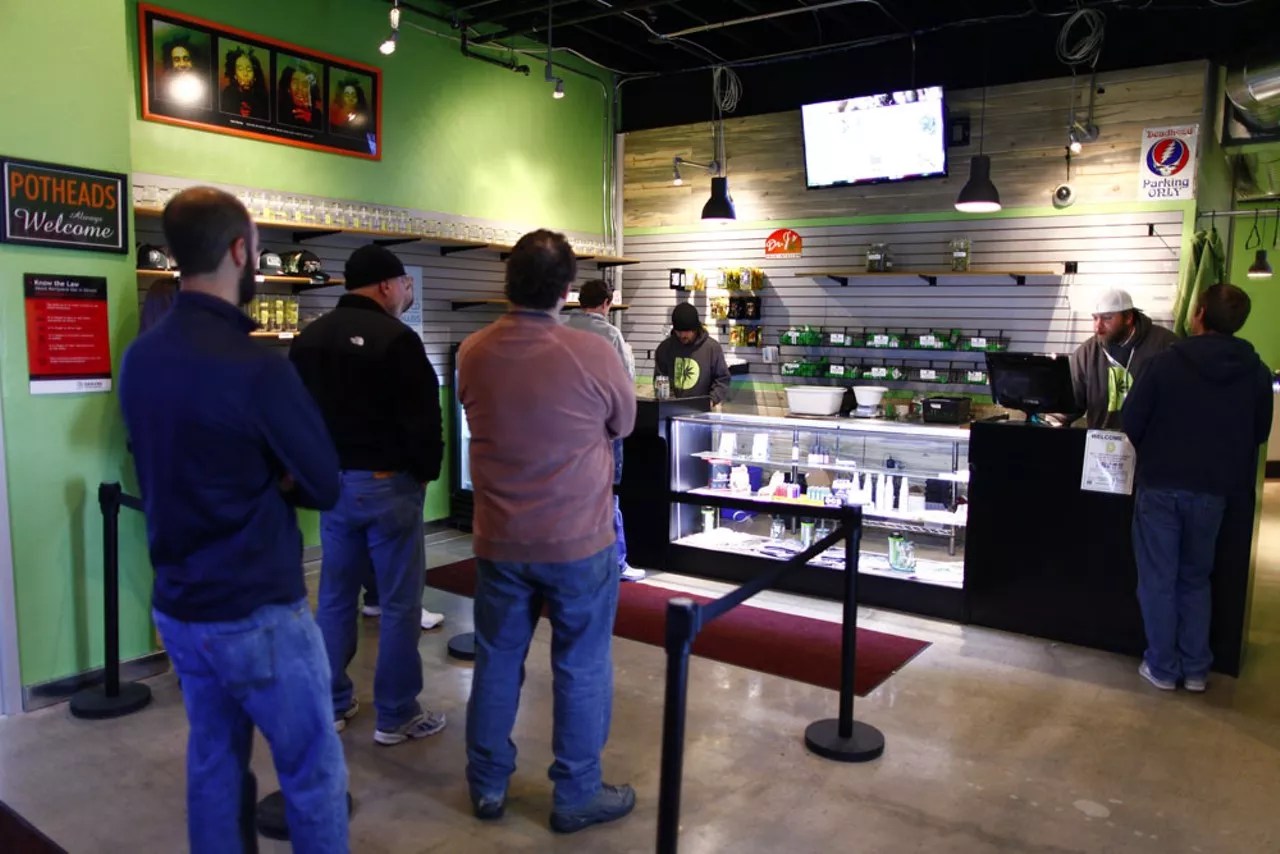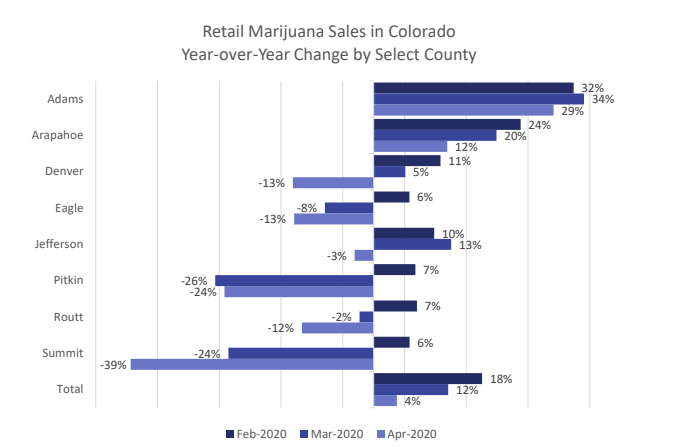
Philip Poston

Audio By Carbonatix
Colorado dispensary sales could contribute more to the state budget during the COVID-19 pandemic than originally anticipated, according to an updated forecast from the Governor’s Office of State Planning and Budgeting.
The latest projection for the 2020-21 fiscal year (which starts July 1 and runs through June 30, 2021) predicts that state tax revenue from marijuana sales will actually increase modestly from 2019-20, to around $315 million. While that slight annual bump – just over 1.5 percent – would be the smallest fiscal increase since legalized recreational pot sales began in Colorado in 2014, it’s still an improvement over May’s initial projection.
State budgeters previously predicted that declining tourism and worker wages during and after the COVID-19 pandemic would lead to a 2.7 percent fall in tax revenue from dispensary sales over the next year. Although tourism has fallen during the pandemic (the Colorado Tourism Office just started trying to attract visitors again) and unemployment claims continue to rise, dispensary sales have remained strong through spring and into summer.
June’s budget projection now shows marijuana sales pumping 2.9 percent more tax revenue into the state than anticipated, owing to strong collections in March and April, when dispensaries sold over $309.5 million in pot, according to the state Department of Revenue – almost 16 percent more than what they sold during the same two-month span last year.
Despite improving year-over-year, recreational sales fell over 12.5 percent from March to April, a significant decline given that 4/20, the unofficial marijuana holiday, is in April. The latest budget forecast projects more of the same.
“This growth is anticipated to occur at a slower rate than prior to the pandemic due to suppressed tourist activity in the state and lower wages among Colorado workers,” the report reads, adding that dispensary sales in mountain communities like Summit, Pitkin, Routt and Eagle have decreased significantly during the pandemic. However, some suburban communities – such as Adams and Arapahoe – have both enjoyed rises in marijuana transactions.
Marijuana sales are expected to climb again during the 2021-22 fiscal year, the budget projection notes, but that growth is likely to stay at a similar rate to 2020-21.

Governor’s Office of State Planning and Budgeting